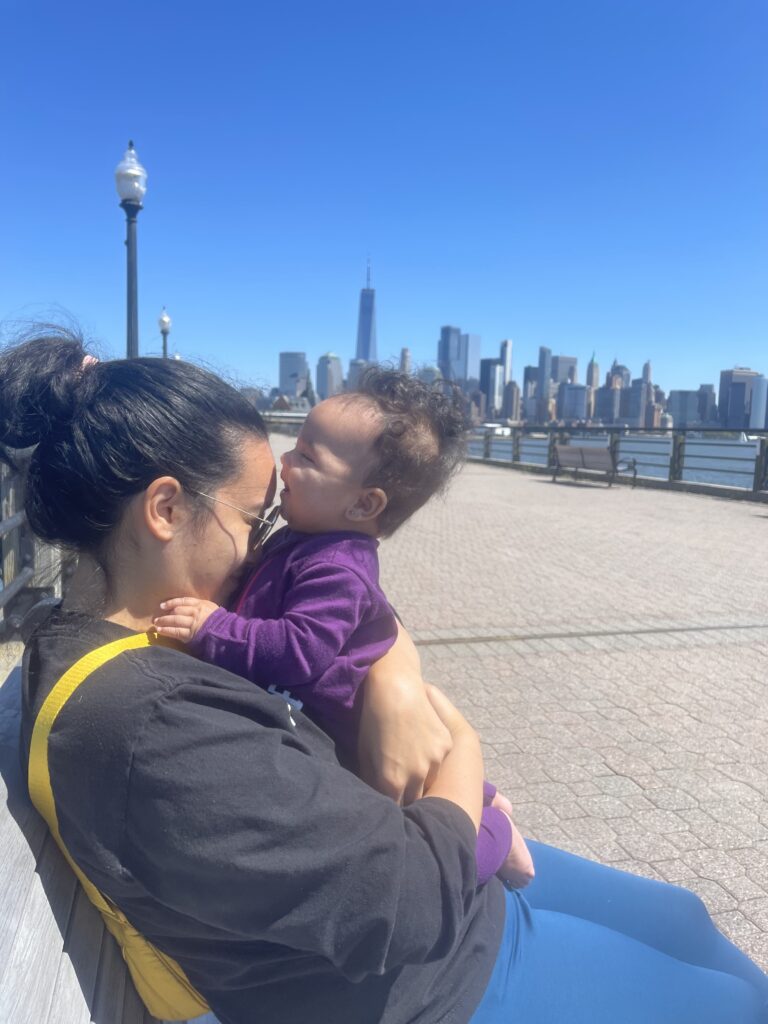To No One’s Surprise, Millennials Aren’t Looking Forward to Motherhood
If only there was something we could do about that…
By Shannon Melero
Around this time last year, I was waddling around my baby shower, taking pictures, and picking food off people’s plates (pregnant privilege) when a friend of a friend came up to me and whispered, “I hated my baby shower, too. But at least it’s almost over.”
I gave a non-committal smile and pretended I had to use the bathroom. Exchanges like this were a regular occurrence throughout my pregnancy; everyone I talked to projected their own experiences onto mine. Never mind the fact that I actually loved my shower and happily ruined my elaborately secured headpiece by doing the dutty wine in the middle of the dance floor, belly and all—my pregnant body was just a placeholder for the feelings of others that they now felt comfortable voicing.
And what struck me is that so many of those feelings were negative. Horror stories about all of the bad things that would happen to me before, during, and after childbirth. It seemed like not a soul had anything positive to say about motherhood.
It turns out this doom-and-gloom narrative surrounding all things mommy is unique to millennials, as Rachel M. Cohen laid out last week at Vox in the now-viral “How Millennials Learned to Dread Motherhood.” Cohen dissects the many, many ways non-moms have been conditioned to think about motherhood:
“College-educated millennial women considering motherhood — and a growing number from Gen Z too — are now so well-versed in the statistics of modern maternal inequity that we can recite them as if we’d already experienced them ourselves. We can speak authoritatively about the burden of “the mental load” in heterosexual relationships, the chilling costs of child care, the staggering maternal mortality rates for Black women. We can tell you that women spend twice as much time as men on average doing household chores after kids enter the picture, that marriages with kids tend to suffer. We’re so informed, frankly, that we find ourselves feeling less like empowered adults than like grimacing fortune-tellers peering into a crystal ball.”
Add to this the absolute barrage of mommy content that Cohen details, from self-help parenting books to idyllic momfluencers warning millennials about the highs and mostly lows of having a child—and it makes sense that the birth rate in the U.S. is on the decline.

Cohen’s overall thesis wasn’t that millennials hate kids, but that we are being inundated with so much negative information about motherhood that it’s practically in the air we breathe. And she’s right. If I didn’t already have a kid myself and was going off what I read, I’d think it was the worst possible choice I could make in life.
But what I find frustrating about the mountains of think pieces around motherhood is how much time is devoted to the over-intellectualizing of The Decision and its pitfalls rather than mothering itself. It’s the navel-gazing on who-what-when-where-and-why people are deciding to have kids that distracts us from the larger issue: addressing the massive structural hurdles that have been placed in front of mothers for decades.
Consider the lack of affordable childcare, soaring costs of food, diaper shortages, and crumbling social safety nets for children in America. Add to that the absence of post-partum care, unless you pay for it out of pocket—the decision to skip motherhood is practically made for you. But all this constant talk about how hard motherhood can be isn’t giving way to what we as a society can actually do about it. Part of the structural problem is America has such an individualistic culture that we don’t think other people’s children are our problem. Whereas, for example, many Latine cultures emphasize the “village” approach to raising children. (Cohen also gets into how politicians, particularly Republicans, actually weaponized family-first values in such a way that made progressive millennials feel they were falling into a GOP trap if they voiced wanting a family.)
Once I gave birth to the world’s cutest baby (this has been fact-checked), people were notably less interested in having theoretical discussions about my decision to have a child. In their minds, by going through with that choice, I’d already done the hard part; I’d signed up for my miserable mommy fate and must endure it on my own. All that intellectualizing about why I would want to have a baby only to have my experience as a mom, like many other moms, boiled down to internet memes about sleeplessness and clueless partners. It is incredible how moms are so seen and discussed as theoretical figures, but in practice, we are invisible, obscured by our very own creation.

Now that I am a mom, I’ve been asked if motherhood is “worth it.” To that, I can only respond: Worth what? What thing do I hold up as a measuring stick to the experience of being a mom to determine its worth? There’s nothing that comes close, nothing that can really quantify the feeling I get when my kid laughs her screechy laugh. It’s also an incredibly insidious question because what we’re really asking moms is: Is your child’s life worth the money and resources that you’re demanding from the government?
That we spend so much time parsing and studying and surveying why people do or don’t want to have kids would be helpful if it actually went a step further and informed policy. Millennial mom-dread can be an interesting talking point we argue over for the next decade…or we can finally stop asking how to improve mom’s lives and just do the damn thing.
Shannon Melero-Urena
Shannon Melero is a Bronx-born writer on a mission to establish borough supremacy. She covers pop culture, religion, and sports as one of feminism's final frontiers.